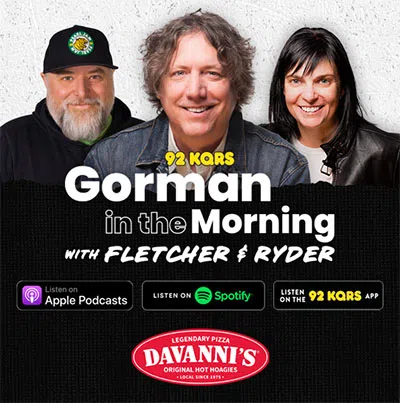
Historic events this week from Stone Temple Pilots, Prince, Nirvana, U2, Alice In Chains, The Cure and more
OCTOBER 26, 1999: STONE TEMPLE PILOTS’ No. 4
No. 4 served as Stone Temple Pilots‘ “back to basics” effort, blending the hard rock intensity of their early work with elements of glam and psychedelic rock. It was certified Platinum and featured the popular singles “Down” and the Grammy-nominated “Sour Girl.”
OCTOBER 27, 1982: PRINCE RELEASES 1999
Prince‘s fifth studio album, 1999, is widely credited as his commercial breakthrough, introducing the infectious “Minneapolis Sound” that defined 1980s synth-funk and pop. The double-LP generated massive hits like the iconic title track and “Little Red Corvette,” the latter of which became one of the first videos by a Black artist to enter heavy rotation on MTV.
OCTOBER 28, 1977: NEIL YOUNG’S 3LP DECADE COMPILATION
Neil Young‘s comprehensive 3LP compilation gathered classic songs from the first decade his career. The Platinum-selling Decade gathers 35 tracks from Young’s career, including his time with Buffalo Springfield and CSN&Y.
OCTOBER 29, 2002: NIRVANA’S SELF-TITLED GREATEST HITS
Nirvana‘s self-titled compilation stands as the official career-spanning greatest hits, and is significant for featuring studio version of the #1 hit “You Know You’re Right;” the last song Nirvana ever recorded, which had been the subject of a prolonged legal dispute before its release.
OCTOBER 30, 2000: ALL THAT YOU CAN’T LEAVE BEHIND BY U2
U2‘s All That You Can’t Leave Behind was widely considered a triumphant “return to form,” shedding the electronic experimentation of the 1990s for a more classic, anthemic rock sound. The album was a massive commercial and critical success, notably becoming the only record in history to have two different songs—”Beautiful Day” and “Walk On”—win the Grammy Award for Record of the Year in successive years.
NOVEMBER 1, 1994: TOM PETTY’S SECOND SOLO ALBUM
Wildflowers, Tom Petty‘s second solo album, is widely considered a creative high point and a deeply personal work. Produced by Rick Rubin, the 1994 release showcases a looser, more acoustic-driven sound and features enduring hits like “You Don’t Know How It Feels” and “You Wreck Me.”
NOVEMBER 1, 1994: NIRVANA’S MTV UNPLUGGED IN NEW YORK
Nirvana‘s 1993 performance for MTV Unplugged in New York featured a somber, stripped-down setlist, largely avoiding their biggest hits in favor of deeper cuts and inspired covers, including those by David Bowie, Meat Puppets, The Vaselines and Lead Belly. Released posthumously after Kurt Cobain‘s death, the album is celebrated for its raw emotional power and intimate glimpse into the band’s musical versatility.
NOVEMBER 1, 1994: BUSH RELEASES SIXTEEN STONE
Bush‘s debut album, Sixteen Stone, was a massive commercial success, becoming a cornerstone of 90s post-grunge and alternative rock and drew comparisons to grunge pioneers like Nirvana. The album produced a string of major hits, including the chart-topping singles “Glycerine” and “Comedown,” alongside fan favorites like “Everything Zen” and “Machinehead.”
NOVEMBER 1, 2024: THE CURE’S SONGS OF A LOST WORLD
Songs of a Lost World was the long-awaited 14th studio album by The Cure; released 16 years after their previous record, it features a return to their signature dark, atmospheric sound. Lyrically, the album is intensely personal, with Robert Smith confronting themes of mortality, loss, and the passage of time, largely inspired by the recent deaths of his family members.











